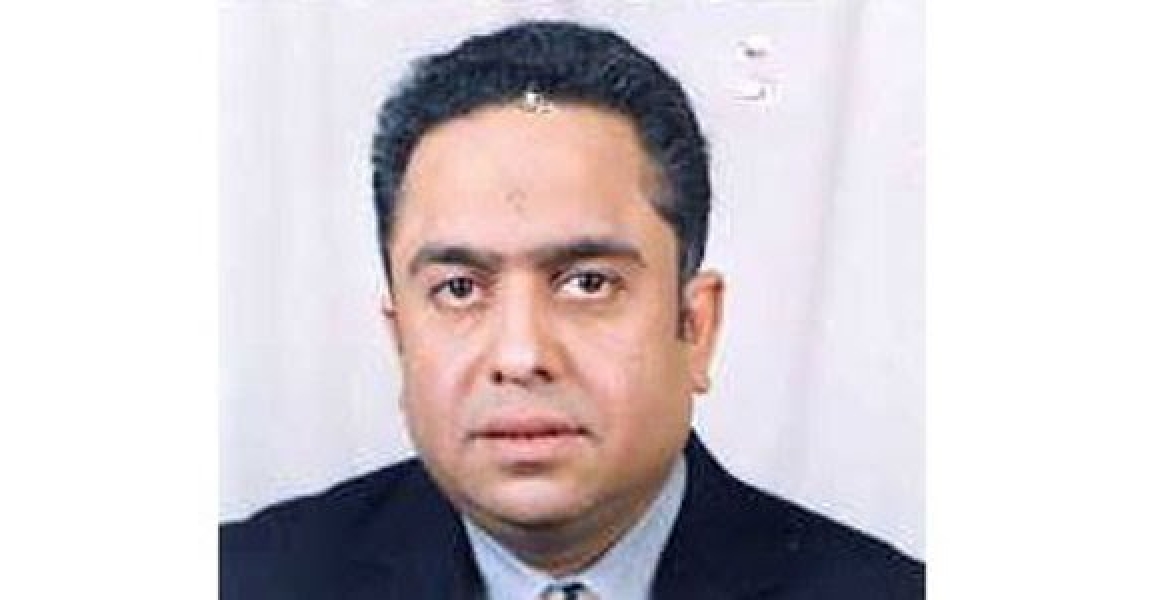Investigations
Triton Scam Mastermind Yagnesh Devani Loses Extradition Appeal After Using Deya’s Excuse

A Kenyan oil tycoon wanted for a £61m fraud tried to use the case of “miracle babies” scandal pastor Gilbert Deya to halt his extradition from the UK.
Businessman Yagnesh Devani is wanted by Kenya over an oil scandal that threatened fuel supplies to east Africa’s biggest economy and led to high-level sackings.
Finally, his decade long fight to stop his extradition has been lost.
He faces 19 charges of fraud in Kenya, one alleges Devani and his firm Triton Petroleum disposed of millions of litres of fuel mortgaged to Emirates National Oil Corporation (Singapore) without its permission.
In a last ditch attempt to halt the proceedings Devani claimed that the Kenyan authorities could not be trusted to place him in a suitable prison and cited the case of alleged child trafficker Deya who was extradited to Kenya in 2017.
Deya, a self-proclaimed Archbishop, had set up a ministry in London and claimed to be able give “miracle babies” to infertile women through prayer.
But in reality, once the women were taken to Kenya they were convinced they were in Labour then given babies taken from local women.
He was extradited on the grounds that he would be kept in a self-contained cell, but six days after he left he claimed in a newspaper interview he was being kept in a “filthy dungeon” with 11 other offenders and was being eaten by flies.
Devani attempted to use this in London’s high court in a bid to show his human rights would be breached if he was returned.
Despite a judge at an earlier hearing halting proceedings due to the report, an appeal by the UK’s Secretary of State has been successful.
Lord Justice Underhill has rejected Devani’s claims and has ruled in favour of his extradition.
“The evidence before the judge was an online news report. It is unverified and is no more than anecdotal evidence that Kenya had breached assurances in respect of another person,” he ruled.
“Mr Deya was, to put it no higher, a witness whose reliability was highly questionable.
“In my view, the weight to be attached to this news report is limited. It has no special force. It does not begin to provide the evidential weight required to undermine the specific assurances given by senior office holders in Kenya. To make the finding which she did, the judge must have attached considerable weight to this report which it simply does not carry.
“In my judgment, it was an assessment of evidential weight which can only be described as perverse and as such represents an error of law. The article did not undermine the specific assurances given by the Kenyan officials. They are assurances which have been accepted in order to meet the respondent’s challenge that in extraditing Mr Devani his article 3 rights would be breached.
“Accordingly, and for the reasons given, I would allow the appeal and would determine that Mr Devani’s extradition to Kenya would not breach his article 3 rights.”
Devani, 55, was arrested by London’s Metropolitan Police in 2011 on suspicion of conspiracy to defraud.
Kenyan authorities allege the state-owned Kenya Pipeline Company (KPC) released petroleum products worth £61 million to Devani’s company, Triton Petroleum, in 2008.
The oil products were being held as collateral for bank loans to KPC.
The head of KPC was dismissed in January 2009 and the scandal caused ructions in Kenya’s fragile coalition government.
Police accused Devani of stealing £9.9m from Kenya Commercial Bank, one of the banks that had loaned money to KPC, and issued an arrest warrant for him.
Patrick Lumumba, the then director of the Kenya Anti Corruption Commission (KACC), said at the time Devani’s arrest hailed a new phase in the nation’s bid to stamp out corruption.
“His (Devani’s) arrest is a very major step against corruption. It opens a new phase in the fight against corruption in Kenya and is also a message to others — you can run but you can’t hide,” he had said.
Mr Lumumba said Kenya has had a long-standing request with the British government for Devani’s arrest and extradition.
He said Devani may have multiple citizenships, but had committed a crime in Kenya while living and working in the country and would be subject to Kenyan laws.
By The National
Kenya Insights allows guest blogging, if you want to be published on Kenya’s most authoritative and accurate blog, have an expose, news TIPS, story angles, human interest stories, drop us an email on [email protected] or via Telegram
-

 Grapevine3 days ago
Grapevine3 days agoAlleged Male Lover Claims His Life Is in Danger, Leaks Screenshots and Private Videos Linking SportPesa CEO Ronald Karauri
-

 Lifestyle6 days ago
Lifestyle6 days agoThe General’s Fall: From Barracks To Bankruptcy As Illness Ravages Karangi’s Memory And Empire
-

 Americas2 weeks ago
Americas2 weeks agoEpstein Files: Bill Clinton and George Bush Accused Of Raping A Boy In A Yacht Of ‘Ritualistic Sacrifice’
-

 Business2 weeks ago
Business2 weeks agoCooking Fuel Firm Koko Collapses After Govt Blocks Sh23bn Carbon Deal
-

 Business2 weeks ago
Business2 weeks agoABSA BANK IN CRISIS: How Internal Rot and Client Betrayals Have Exposed Kenya’s Banking Giant
-

 Investigations1 week ago
Investigations1 week agoEpstein Files: Sultan bin Sulayem Bragged on His Closeness to President Uhuru Then His Firm DP World Controversially Won Port Construction in Kenya, Tanzania
-

 News1 week ago
News1 week agoAUDIT EXPOSES INEQUALITY IN STAREHE SCHOOLS: PARENTS BLED DRY AS FEES HIT Sh300,000 AGAINST Sh67,244 CAP
-

 News2 weeks ago
News2 weeks agoPuzzle Of Mysterious 15 Deaths of Street Children in Nairobi Under A Month and Mass Burials













